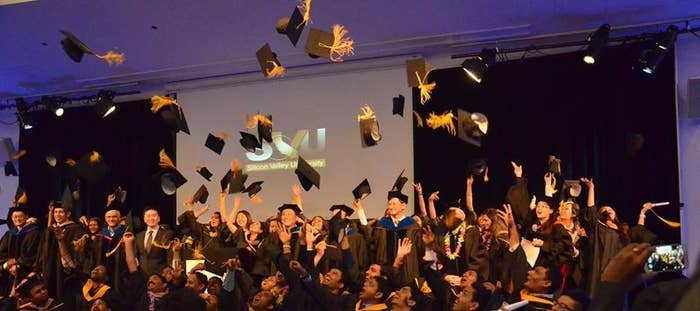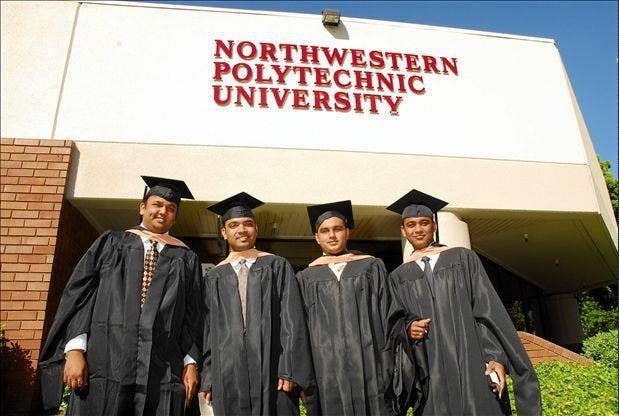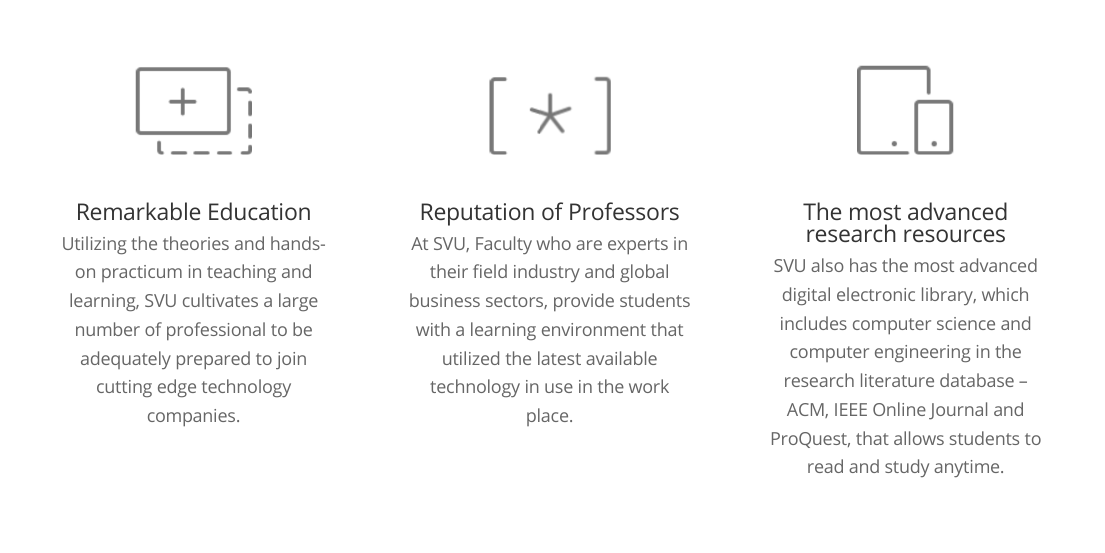
The Indian government has advised citizens enrolled in two small California colleges to temporarily defer travel to the U.S., after the country's state-owned airline said it has been warned by U.S. officials that the schools are under investigation.
On December 20, 19 Indian students were stopped at Rajiv Gandhi International Airport in Hyderabad, where they planned to take an Air India flight to San Francisco. They were prevented from flying by employees of Air India because their colleges are under “scrutiny” in the U.S., according to the Times of India.
The story has revived memories of a 2011 scandal, also involving international students from India, that ended with a college operator being sent to jail for 16 years on charges of visa fraud. Prosecutors at the time said she was operating a sham school that existed specifically to charge fees for securing student visas.
This time, the schools at the center of the controversy are accredited colleges: Silicon Valley University, in San Jose, and Northwestern Polytechnic University in Fremont.
In notes posted to their websites, both schools confirmed students have been denied entry. SVU said some of its new students have been "removed or deported back to India because they were not able to answer the questions adequately to the satisfaction of the inspectors at the port of entry." Northwestern Polytechnic wrote that "a small percentage of international students are being sent back to India, but only those that fail their immigration interviews."

Both denied suggestions the schools were under investigation, saying instead that U.S. border officials are tightening screening at airports across the board due to heightened security concerns. Each advised students to bring detailed documentation when traveling, and to be prepared for thorough questioning by border officials.
But in a statement to the Times of India, Air India said it “received communication on December 19, 2015 from the US Customs and Border Protection agency that two universities namely Silicon Valley, San Jose, California and North Western Polytechnic College, Fremont, CA are under scrutiny and students who arrived into San Francisco were not allowed to enter the US and were deported back to India."
A representative for U.S. Immigration and Customs Enforcement (ICE) told BuzzFeed News in an email that both schools "are still certified by SEVP [the Student and Exchange Visitor Program] to enroll international students.”
The representative added that border protection agents can “deny entry to anyone attempting to enter the U.S., based on a variety of factors.”
India's Ministry for External Affairs said it has "asked the US authorities to explain the reasons for denial of entry on a large scale to Indian students holding valid visas," in a statement Wednesday, naming both SVU and Northwestern Polytechnic. "Students seeking admission in aforementioned two institutions are advised to defer their travel to the United States," in the meantime, it said.
Simon Au, an associate dean at Silicon Valley University, told BuzzFeed News that the problem was rooted in "rumors on the Indian side" about the school. "It has nothing to do with the school," Au said.
Northwestern Polytechnic University president Peter Hsieh posted a video to YouTube echoing that the school had not been blacklisted. He cited a number of international students who had recently arrived back in the country from vacation without any major issues.
Hsieh went on to charge Air India with playing a part in Sunday’s incident with the 19 students. “I believe this panic stemmed from Air India unilaterally deciding not to allow their customers to purchase tickets to come study here,” he said.
Both Silicon Valley University and Northwestern Polytechnic are accredited colleges that offer technical and computer science degrees, marketing their connections to the San Francisco tech world to prospective students. More than 90% of SVU students are in the U.S. on foreign student visas.
SVU said its students come primarily from India, mainland China, and Taiwan.
Since at least 2014, the schools’ official Facebook pages have been choked with posts from prospective students in India and other Asian countries, trading visa tips and advice for flights out of Hyderabad, as well as posts promising to send “liquid cash” and “complete immigration documents” via WhatsApp.
A reporter from the Times of India who visited the campuses in California earlier this week said that the vast majority of students appeared to be Indian. Students interviewed said that more than 70% of their class was made up of Indian students, the newspaper reported.
The agency that accredits the two schools, the Accrediting Council for Independent Colleges and Schools, has come under fire this year for lax standards and poor oversight after a massive for-profit college it oversaw, Everest Colleges and Universities, collapsed in the midst of accusations that it had misled students and faked job placement numbers. ACICS confirmed to BuzzFeed News that it accredited both colleges, but declined to comment further.
A nonprofit tax form filed by Silicon Valley University in 2013 suggests the school is relatively small, taking in just $1.3 million in revenue for the year. A description of the school’s accomplishments in government filings says: “The university is getting recognition in the Silicon Valley as one of the good training institute for high-tech professionals.”
Silicon Valley University declined to comment on its financials.
The tax filing shows that SVU spent a total of $2.5 million for the year, $278,000 of which was paid in salary to the school’s president, Feng-Min Jerry Shiao, and his wife, Mei-Hsin Cheng, who is also the school’s treasurer. It paid $250,000 to a firm in Taiwan that markets and recruits students, according to the filings.
In 2013, the school also loaned $2.6 million, or 30% of the school’s total assets, to the wife of the school president. The purpose of the loan, tax filings said, was to “acquire a property to cope with the school campus expansion.”

Northwestern Polytechnic is much larger than Silicon Valley University, bringing in $38 million in revenue. But the university’s filings, too, are riddled with English usage errors. Its 2014 tax filing says the university’s mission is, “to provide an advance education and a high technology learning envirolment that motivats students to pursue intellectual growth.” In another box, the school’s mission is described as: “To provide an advance education and”.
Of Northwestern Polytechnic’s $11 million expenses in 2014, $299,000 went to the school’s president, George Hsieh, and another $257,000 to his son, Peter, who recently took over the school.
In 2011, an unaccredited California college called Tri-Valley University that had brought 1,500 Indian students to the United States was shuttered, and its owner sentenced to 16 years in prison for immigration fraud. In legal filings, the government called Tri-Valley a “sham university” — it existed only to provide visas and collect tuition payments from foreign students, rarely requiring them to attend class or even offering classes at all.
A 2011 investigation by the Chronicle of Higher Education in the wake of the Tri-Valley scandal found a network of other unaccredited colleges who were engaged in similar practices, enrolling almost exclusively Indian students and others on foreign visas. At a college where the founder of Tri-Valley had been a faculty member, Herguan University, most of the foreign students worked in out-of-state jobs, supposedly taking classes at Herguan online. The Chronicle reported that Herguan’s president had allowed a student living in Chicago to obtain three credits by paying $225 and taking a single test online.
At the time, Herguan’s president boasted to the Chronicle that, though it was unaccredited, the school’s credits were accepted at two other universities: Silicon Valley University and Northwestern Polytechnic. Herguan has since obtained accreditation from the Accrediting Council for Independent Colleges and Schools, the same agency that has given its stamp of approval to Silicon Valley and Northwestern Polytechnic.


